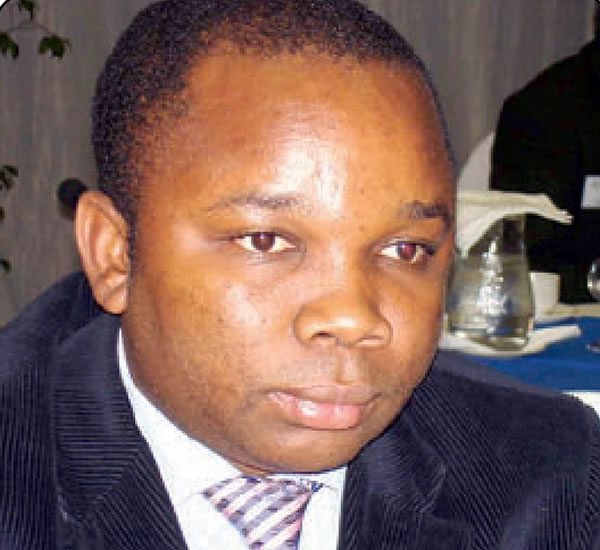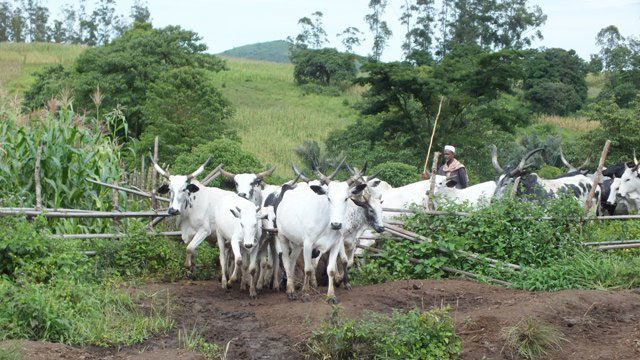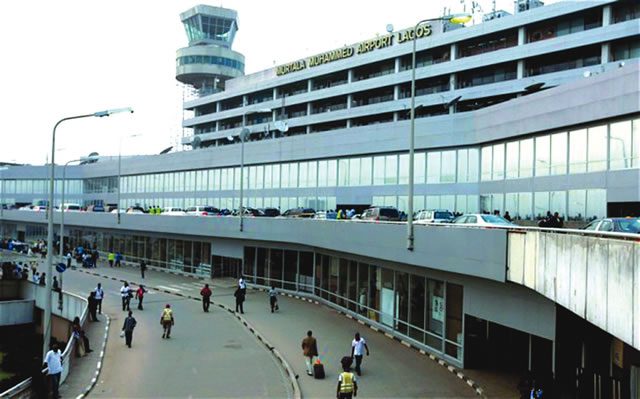National Issues
Herdsmen Crisis in Nigeria: President Buhari Is Oversimplifying The Issue -By Uche Igwe
Presently, trust between herdsmen and other Nigerians have completely broken down and it is my candid view that the situation was preventable. It is now the herdsmen versus other Nigerians. If this continues, the herdsmen may inadvertently be turned to endangered people across the country when this regime is over.

Last Friday, I read about the unfortunate death of the daughter of the leader of pan-Yoruba group, Afenifere, Mrs. Funke Fasorantin-Olakunrin, by suspected Fulani herdsmen, in an incident that happened between Kajola and Ore along Ondo-Ore road. She was said to be travelling from Akure to Ore when the attack by these bandits happened, which leading to her gruesome death. Like many Nigerians, I am outraged by the tragedy of her loss and I am extending my deepest condolences to her father, the leader of Afenifere, Pa Reuben Fasoranti, and her entire family.
This unfortunate event once again calls for a more objective and dispassionate interrogation of the general insecurity issues in Nigeria, and the incessant attacks of these herdsmen in particular. It is now a huge source of apprehension nationwide. According to the Global Terrorism Report, about 1700 deaths have been attributed to attacks carried out by these marauders between January and September 2018. This figure is six times more than the number of people killed by the Boko Haram terrorist group within the same period. It is reported that 89 per cent of those killed in the attacks were civilians.
The struggle for economic resources like land and water between farmers and nomadic cattle herders is not new. Pastoralists and farmers have always competed for land to serve their different purposes. The competition extends beyond Nigerian borders. So far, the high impact States used to be Benue, Taraba and Plateau. The clashes have been happening sporadically in communities in these States. It later spread to so many other states across the country, with recorded incidences of kidnapping, rape and armed robbery, involving the use different forms of sophisticated weapons. It is now urgent to find out whether we have asked the right questions about how and why these resource related conflicts between communities have escalated to a widespread national security crisis.
When the attacks escalated in 2016 and led to the death of about 800 persons around Eggon, Jukun and Tiv communities, near the Middle Belt, many people expected certain kinds of responses from the highest levels of government. For instance, the public expectation was that President Buhari would have been swift in condemning the killings and ensuring that the perpetrators are brought to book. That did not happen to the best of our knowledge. Rather, what followed was a deafening silence which created room for several interpretations and conspiracy theories. As the killings continued more brazenly, many people began to focus more on what they perceive as the body language of the president who himself is of Fulani extraction.
As an individual, I have tried to put myself in the

It may be useful to look at the conflict from the lens of other scientific factors like worsening environmental conditions around the Sahelian region, changes in the volume of rainfall, rapid population growth, speedy desertification and high soil degradation. These factors can lead to decreases in crop yield, the low morale of farmers and the southward migration of pastoralists. Although these arguments remain valid, the remedies must be pursued methodically without offending the feelings of other citizens. The coincidence that Fulani herders are predominantly Muslim, while the farmers are predominantly Christian adds a potentially explosive religious dimension to the conflict, something government has consistently failed to acknowledge in all its interventions.
What is surprising, however, is that some parochial leaders in this country have mischievously decided to label the herdsmen as the oppressed to garner dubious sympathy – just the same way as they pushed the narrative of poverty, not terrorism, around Boko Haram – that brought us to where we are now. Herdsmen have now formed themselves into pressure groups and regularly come to the media to defend their position. Let me add here that it is within their rights as Nigerians to come together to push any position they want within the ambit of the law. However, they must also learn to respect the rights of others. It is important to gauge the pulse of the street and the mood of the nation in all they do if peaceful co-existence is part of their objectives. I will not comment on the National Livestock Transformation Plan, as we have been informed that the policy is under review.
There are speculations that those who support and fund these pressure groups love or are trying to help the Fulanis. Many politicians have continued to tilt towards this direction publicly or speak from both sides of their mouths in the pursuit of political correctness. They may be correct as long as a Fulani man continues to be the president of the Republic. Afterall, no one wants to offend the president. The last time I checked, President Buhari has resumed his final term as allowed by the Constitution. I cannot say for sure who will succeed him. If per chance the person is not a Fulani or a sympathiser of the so-called Fulani cause, the politicians supporting the president’s approach to the herdsmen crisis now will vanish overnight.
In the end, the nation would have lost an important opportunity to have an objective conversation about a festering national crisis. We would have lost an opportunity to listen to the plight of these herdsmen in an atmosphere of mutual trust, devoid of suspicion and fear. Today, it is generally believed that most of the acts of banditry, like killings, kidnapping, armed robbery that are taking place across the country are being perpetrated by Fulani herdsmen. It appears as a national invasion and the lacklustre response of government has led to unintended consequences. Up to my small village in Imo State, the fear of the so-called Fulani invaders has become the beginning of wisdom.
Whereas it is in poor taste to assume that all the criminality going on right now across the country is being perpetrated by men from the Fulani ethnic stock alone, what is true however, is that the poor handling of the crisis by President Buhari and his team has led to an oversimplification, hasty
There are now two groups among the Nigerian elite. Membership of each group has its rewards. Those who speak publicly against the crisis are seen to be enemies of the president, while those who keep quiet or prevaricate are his friends. For me, the real enemies of the Fulani are their leaders who present a body language that emboldens either the criminal elements amongst the herdsmen or sponsored pressure groups to defend the killings and insult the sensibilities of other Nigerians.
Presently, trust between herdsmen and other Nigerians have completely broken down and it is my candid view that the situation was preventable. It is now the herdsmen versus other Nigerians. If this continues, the herdsmen may inadvertently be turned to endangered people across the country when this regime is over. The sad stereotypes that have already developed in the minds of Nigerians about the herdsmen will obviously last beyond the Buhari administration. Many of their leaders may not care but time will tell.
The raging debate about security in the country is not a simple one. It is a multi-dimensional national malady that paints this administration as lacking in the right pan-Nigerian strategy to tackle such a complex crisis. The security agencies have failed consistently to provide the needed help to victims as they routinely arrive after the criminals have disappeared into the bush. This is a national emergency that deserves a robust long-term response. President Muhammadu Buhari appears to be failing progressively on the primary duty of government, which is the security of lives and property. It is now a huge embarrassment on all of us. Citizens are deeply worried and apprehensive about whether the Buhari administration will be able to ask the right questions or provide a platform to review the herdsmen crisis objectively, rebuild declining trust among citizens and deal decisively with other emerging issues.
Uche Igwe is a political economy analyst and governance expert. He can be reached on ucheigwe@gmail.com.

















